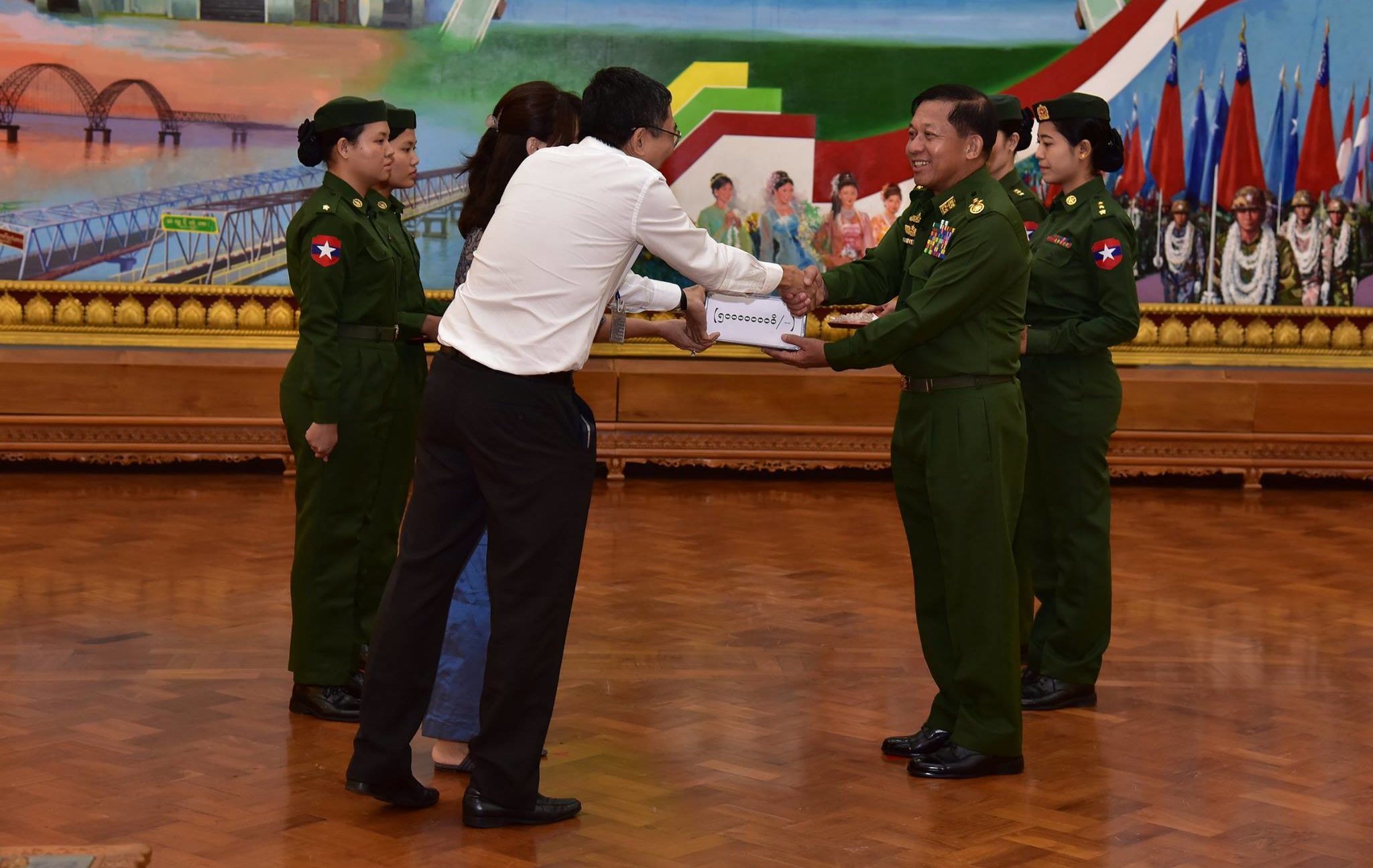Japanese beer company Kirin has announced that it is investigating a donation allegedly made by its Myanmar subsidiary to the country’s military just days after the mass displacement of Rohingya civilians began last year. The allegation was presented in a report released yesterday by Amnesty International.
According to the report, Myanmar Brewery – the local company that produces Myanmar Beer – handed a donation worth at least US$6,000 to a senior military official at a ceremony in Naypyidaw on Sept. 1, 2017. Kirin holds a 55 percent stake in Myanmar Brewery, while the remainder is owned by the military-linked Union of Myanmar Economic Holdings Limited (UMEHL) – a powerful conglomerate that has been credited with allowing Myanmar’s military to maintain its supreme influence over the country’s politics.
“It beggars belief that any international investor would make donations to Myanmar’s military at a time when those very forces were carrying out ethnic cleansing of the Rohingya population in northern Rakhine State,” Seema Joshi, Amnesty’s head of business and human rights, said in a June 14 press statement.
As evidence of the donation, Amnesty has pointed to a Facebook post by military chief Senior General Min Aung Hlaing that lists Myanmar Brewery as one of the donors.
“Late last year, a colleague in the region noticed the reference to two donation ceremonies relating to Rakhine that were held in Oct. 2017 on the Facebook page of Min Aung Hlaing,” Amnesty’s business and human rights researcher Mark Dummett told Coconuts. “These reports listed the companies that made donations, including UMEHL and JV partners, as well as Myanmar Brewery.”
The post describes a “ceremony to make cash donations for security personnel and state service personnel who risked their lives while shouldering national defence and security duties and ethnic natives who fled their homes due to brutal attacks of ARSA extremist Bengali terrorists.”
I also includes a speech given by the senior general that justified his forces’ assaults on Rohingya communities and asserts the government’s position that the Rohingya are not entitled to citizenship in Myanmar. The Rohingya consider themselves native to the land that became part of Myanmar when the country gained its independence from Britain.
Joshi denounced the lack of oversight that allowed Kirin’s funds to be used in such a way. He said in yesterday’s report: “Not only is there a risk that these donations actually funded the operations of military units involved in crimes against humanity, but the choice to appear in a donation ceremony with Myanmar’s top military leaders also sends a worrying message that Myanmar Brewery endorsed the military’s actions against the Rohingya population.”
According to senior general’s Facebook post, “partner companies of Myanmar Brewery Enterprise” passed the cash donation to Chief of the General Staff (Army, Navy and Air) General Mya Tun Oo – a reference to Kirin. Kirin has confirmed that it approved the donation, saying it was following up on a request from its local partner UMEHL, but it insists the funds were transferred “on the condition” that they would be used for humanitarian aid. Kirin has also said that Myanmar Brewery is prohibited by their joint venture agreement from funding military operations.
“Our understanding and intent when we made the donation was to support victims of the conflict,” Kirin president and CEO Yoshinori Isozaki told Amnesty in letter dated May 22, adding: “At this stage, we have not been able to confirm details of how and where the support was ultimately provided, beyond the assurances given when donations were solicited. This is an important aspect of the donation decision-making and follow-up process that we intend to address.”
Nonetheless, Amnesty has suggested possible government action against Kirin. Joshi said: “Japan has a responsibility to ensure that its companies do not contribute to human rights abuses, regardless of where they operate. The Japanese authorities should urgently investigate these questionable gifts.”
While Amnesty’s research has brought much-needed attention to Kirin’s lack of oversight, the evidence it presented also sheds light on the meager ability of rights groups and members of the public to track businesses’ political activities in Myanmar.
In his letter to Amnesty, Kirin’s CEO said: “We were not sufficiently aware of how the donations would be publicized and which government officials would be presenting or commenting on the situation, in which capacity. We necessarily rely on local sources for a great deal of information in many aspects of our business operations around the world.”
This stands equally true for Amnesty and for members of the public who seek to hold businesses to account for their ethical breaches, and it suggests that if the senior general had not shared the news of the donation on Facebook, we may never have known. It also suggests that there may be other ethical breaches that will never be discovered.
TOP PHOTO: A donor hands cash to Senior General Min Aung Hlaing at a ceremony in Naypyidaw on Sept. 1, 2017. (Photo: Facebook / Senior General Min Aung Hlaing)



Reader Interactions